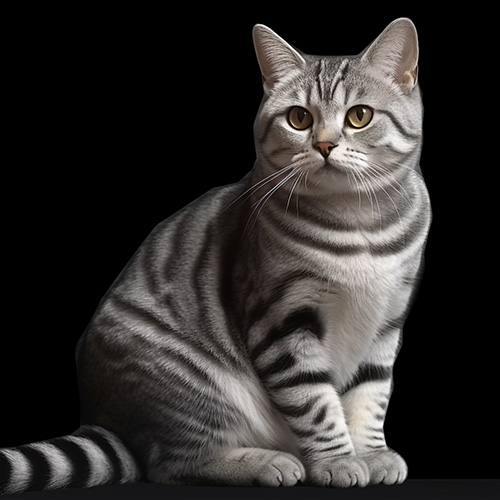Solen Shorthairs
British Shorthair Silver Tabbies
Based in rural Shropshire
About
Welcome to Solen Shorthairs, home to beautiful British Shorthair cats. I'm Pete, a veterinary surgeon and hobby breeder located in rural Shropshire. With a lifelong affinity for British Shorthairs, having grown up with the breed, I take great pride in working to continue the lines of these fantastic family pets.
At Solen Shorthairs, we specialise in British Shorthair Silver Tabbies, a decision based primarily on my wife's opinion that they're the most alluring colour variant of the breed, along with the fact that my children believe they look like miniature snow leopards. However, their captivating appearance aside, it is their gentle, calm, tolerant nature that makes for ideal feline companions.
As a devoted breeder and medical professional, I prioritise the well-being of our cats. Each kitten is raised with care and diligence, and equally important, is well socialised in a vibrant child and pet filled household.
Thank you for visiting Solen Shorthairs.
The Breed
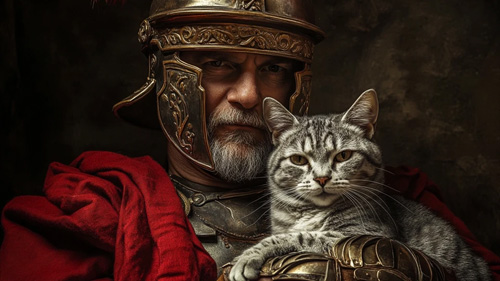
History
The British Shorthair is a breed with a rich history originating in the United Kingdom. Following their import by Roman soldiers, who used them to keep their camps clear of vermin, these immigrant felines developed over centuries into large, robust cats with short, dense coats, to help protect them against the harsh British climate. Eventually, they gained popularity for their distinctive appearance and charming personalities.
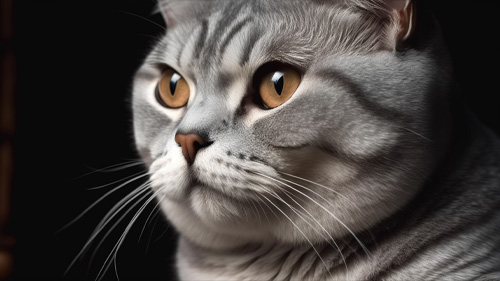
Physical Characteristics
British Shorthair Silver Tabbies have a striking silver coat broken up with black stripes, swirls and spots: iconic tabby markings. They possess a sturdy and muscular build (cobby), a broad chest, and a round face, typically set with large, hazel or green eyes and a gentle expression.
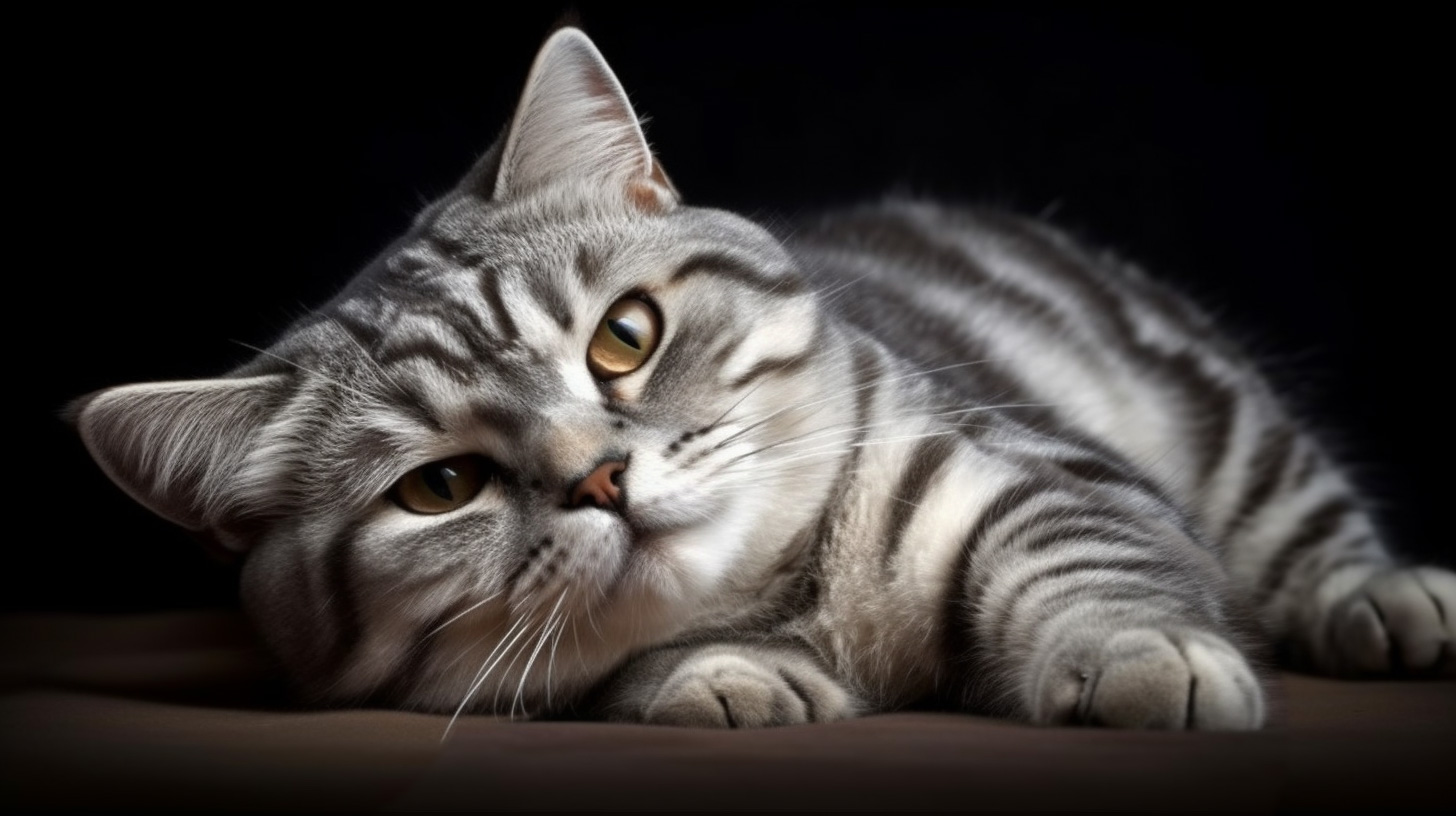
Temperament
British Shorthair are known for their calm and easygoing nature. They are independent yet enjoy the company of people and other pets. They are playful, but not overly demanding, making them great companions for the whole family.
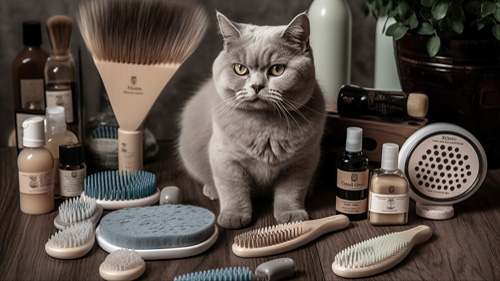
Care & Grooming
When it comes to grooming, British Shorthairs are a low-maintenance breed, requiring only a weekly brush to keep their coat in good condition. They are best suited for indoor living, as their gentle temperaments and trusting personalities make them far from street-wise.
Gallery
Kittens
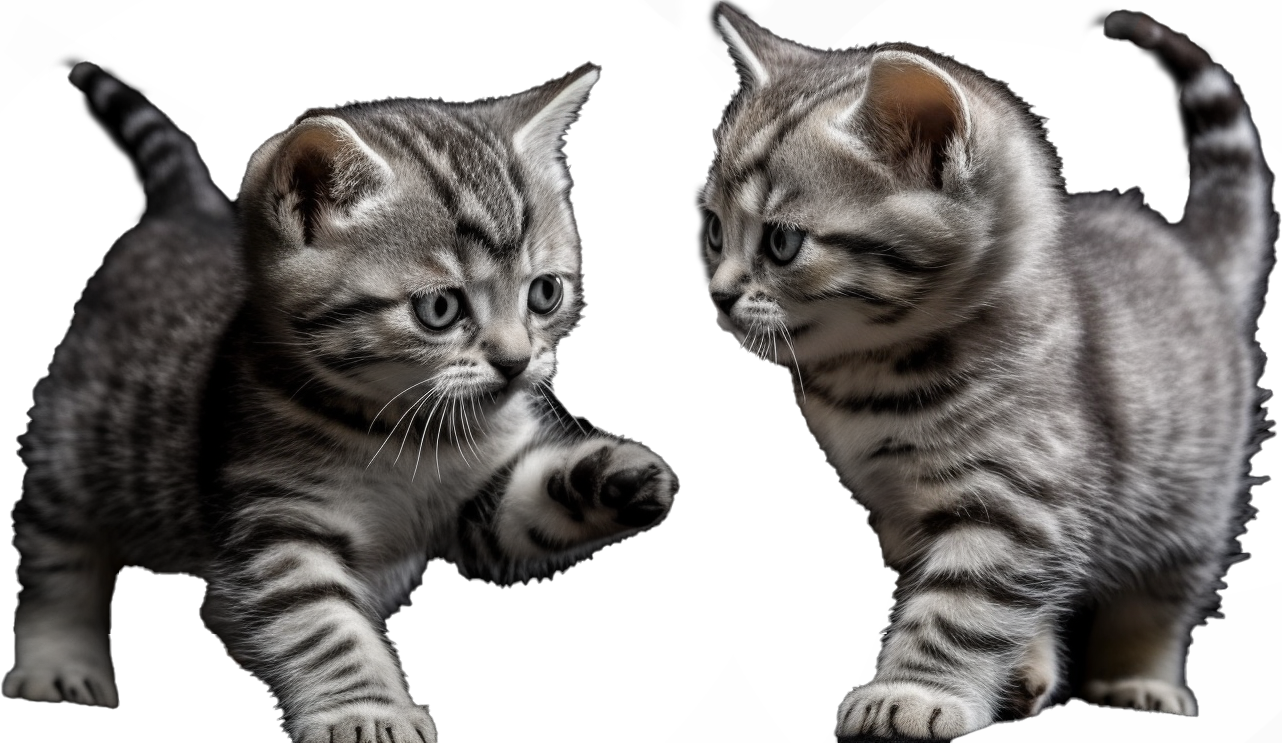
For those interested in welcoming a new furry addition into their lives, please take a look at our Google registration form below.
FAQs
British Shorthair cats can be described as calm, reserved, and independent. Here are some typical characteristics of the breed:
Gentle and laid-back: BSHs are generally known for their gentle and easygoing nature. They tend to be less demanding and more relaxed compared to other breeds. They enjoy a peaceful and stable environment and are less likely to be overly active or hyperactive.
Reserved demeanour: They can be rather reserved, especially when meeting new people or encountering unfamiliar situations. They may take some time to warm up to strangers.
Independent nature: BSHs have a strong sense of independence and are content spending time alone. They don't usually demand constant attention and are happy to entertain themselves. However, they still appreciate human companionship and enjoy being near their owners.
Observant and watchful: British Shorthairs are known for their observant nature. They like to sit back and observe their surroundings, keeping a watchful eye on their environment.
Good with families: BSHs generally get along well with families, including children and other pets. They have a patient and tolerant nature, making them suitable companions for busy households.
Playful and curious: While they may not have the same level of energy as some more active breeds, BSHs have a natural curiosity and still enjoy playtime and interactive toys.
It's important to note that individual personalities will vary within the breed, and each cat will have its own unique traits and preferences.
The health and well-being of our kittens are of utmost importance to us. We strive to breed healthy, happy, and well-socialised kittens that will become beloved members of your family. Please read on to learn about the steps we take to promote the health of our kittens:
Responsible breeding practices: This includes selecting breeding cats with great overall health, sound temperaments, and without known genetic health issues. Screening tests along with ancestral clinical histories help to identify potential hereditary conditions and reduce the chance of them being passed on.
Veterinary care: Kittens receive regular check-ups, and are given a thorough clinical examination by a veterinary surgeon, looking for conditions such as: hernias, heart murmurs, musculo-skeletal and neurological defects. All kittens are fully vaccinated, treated for parasites, microchipped and neutered before they leave us.
Socialisation: Frequent socialisation from an early age helps kittens develop into well-adjusted and confident cats. We provide a nurturing and stimulating environment inside our family home, where kittens have positive interactions with adults, children and other pets from an early age.
Nutrition: The mother provides 100% of a kitten's dietary requirements for the first 3 weeks of life. After this they have ad-lib access to their adult diet, which supplements their milk intake until they are fully weaned.
Health records: Kittens are diligently monitored and weight checked regularly to ensure that they are growing and developing as expected.
Insurance: All kittens leave us with a four week insurance policy from PetPlan.
GCCF Approved Breeder Scheme: We are a member of the GCCF's Approved Breeder Scheme; an indpendent body who oversees breeding practices to ensure that the health and wellbeing of pedigree cats is without compromise.
British Shorthair cats are typically well suited to life as a house-cat, but yes, they can absolutely go outside. However, it's important to consider the risks before allowing them free-rein access to the great outdoors.
Outdoor spaces can pose various risks, such as: traffic accidents, encounters with other animals, exposure to infectious diseases and theft. It's important to consider the safety of your surroundings and assess whether your cat will be exposed to any significant dangers.
One alternative, if you wish to let your BSH cat go outside, is to install an outdoor cat run. Allowing your cat to experience the outdoors whilst remaining safe.
Regardless of whether your BSH cat goes outside, it's essential to provide them with plenty of environmental enrichment indoors. You can provide toys, offer scratching posts and provide window perches in order to create a stimulating indoor environment. We recommend the customisable indoor cat-tree by Omlet.
No, we do not allow breeding from our cats. Vetting and screening a new breeder is not something we wish to be responsible for. We encourage you to enjoy our cats as cherished pets and companions.
Sensible breeding and diligent care are by no means a guarantee that a cat will remain healthy throughout its life, and will not require significant medical intervention at some point. As such, unless you can afford the expense of a large medical bill, it is strongly recommended that you take out a policy with a reputable insurance company.
There is no one-size-fits-all solution to this question, and many individuals, including vets, breeders, and pet food manufacturers, hold strong opinions on this subject. Various dietary options have their own pros and cons, so our recommendation is to consult with your vet, while finding what suits both you and your cat. Here are some of the available options:
Dry: A complete kibble diet can conveniently provide all the necessary nutrition for your cat. If your cat doesn't tend to overeat, you can leave the biscuits down all day, following a grazing diet. However, dry diets are associated with an increased incidence of urinary tract disease, including: renal failure, urinary tract inflammation and blockages (in males) from crystals/stones.
Wet: Wet diets, which come in tins/pouches can increase water intake, reducing the incidence of urinary tract disease. However, they can be rather odorous and inconvenient, and may be associated with an increased risk of dental disease (although teeth brushing can prevent this).
Raw: Considering cats are obligate carnivores, a 100% raw meat diet seems logical to some. Raw diets come in various forms, with the freeze/air dried varieties being the most convenient. However, there is an increased chance of GI infections in cats on such diets, including zoonotic diseases such as Salmonella, E. Coli and Listeria. This makes them unsuitable for households containing young children, pregnant women or the immuno-compromised. Additionally, there is an increased risk of GI parasitic infections, although this risk is lower than one might think, since raw diets typically exclude the most parasitised body parts (GI tract). Whilst on a raw diet it would be prudent to worm your indoor cat twice a year (outdoor cats should already receive routine treatment for parasites). For more information on feeding raw diets please take a look at this well balanced article published in the Canadian Veterinary Journal: click here.
Fresh: Similar to raw diets, but the meat is cooked (steamed) and it excludes many of the bulking additives found in other cat foods. It is a great option, although perhaps it's less convenient than freeze/air dried raw diets.
At Solen Shorthairs we predominantly feed a high-quality dried food diet from Royal Canin or Hills to our adult cats, which is supplemented 3 or 4 times a week with fresh food. Whereas our kittens mostly eat fresh food from KatKin. Our adult cats are wormed twice yearly with a wormer that includes action against tapeworms.
Finally, British Shorthair cats can have a propensity towards idlenss, so care should be taken not to overfeed them. An obese cat with joint disease and contispation is not a happy cat.
Sensible breeding and diligent care are by no means a guarantee that a kitten will remain healthy throughout its life and will not require significant medical intervention at some point. We strongly advise owners to register with a reputable veterinary surgery. Please note that Solen Shorthairs do not cover medical bills, nor expenses once a kitten has left our care; but we are happy for kittens to be returned to us for a 75% refund within the first 12 weeks, just incase a new owner's circumstances should change for any reason.
Absolutely. Hopefully this will only be for an annual check-up: for a health examination and to discuss infectious disease and parasite preventive care. However, it is essential that you review the emergency service provision of the practice you choose. You need to know who you will be speaking to and where you will be travelling if you require emergency care outside of working hours.
Our apologies, we only have litters from our cats infrequently, they are first and foremost our pets. We can only suggest that you register your interest and check back again in the future.
When we have kittens available we will reach out to people who have completed our registration form, sending out comprehensive information including pricing and other essential details. We feel our pricing aligns with the hard-work that has been put into breeding BSHs that surpass the breed standard.
We are happy for kittens to be returned to us for a 75% refund within the first 12 weeks, just incase a new owner's circumstances should change for any reason.
Much like with specific breeds of dog, a cat's breed serves as a predictor of its temperament and aesthetics. Breeders adhere to a set of guidelines established by the GCCF, which ensures that only animals that uphold the breed standards are selected for breeding, thus maintaining the standard of the breed. Of course anomalies will exist, and breed standards are by no means a guarantee of temperament. Though it's unlikely, it is possible that your BSH may not be easygoing nor undemanding, but that wouldn't be expected.
Unless you're particularly set on the striking appearance of a Silver Tabby, or the typical temperament of a British Shorthair, then perhaps adopting a rescue kitten, or reviewing alternative breed options may be better choices.
Yes we do. Our GCCF breeder's prefix is: "SOLENCATS". All the pedigree names of our kittens are prefixed with this.
A pet cat requires several ongoing care practices to ensure their well-being. Here are some essential aspects of cat care:
Nutrition: Provide a balanced and nutritious diet suitable for your cat's lifestage and activity level. Please refer to the FAQ "What should I feed my cat?" to find out more.
Fresh Water: Always provide fresh, clean water for your cat to drink.
Grooming: Regularly brush your cat's fur to remove loose hair and prevent matting. Additionally, trim their nails when necessary and routinely clean their teeth (if this is tolerated).
Litter tray: Provide a clean litter box and scoop it out daily. Regularly change the litter and thoroughly clean the box to maintain proper hygiene. We can recommend the litter boxes from Omlet and the Litter Robot from Whisker.
Vaccinations and preventive care: Ensure your cat receives regular check-ups with a veterinarian. This should include a health examination and discussions regarding infectious disease control and parasite preventive care.
Environmental enrichment: Provide a stimulating environment for your cat by offering toys, scratching posts, and climbing structures. Engage in interactive playtime and provide opportunities for exercise and mental stimulation.
Safety and protection: Ensure your cat's environment is safe by keeping toxic substances (e.g. anti-freeze and paracetamol), plants (e.g. lilies), and dangerous objects out of the way.

